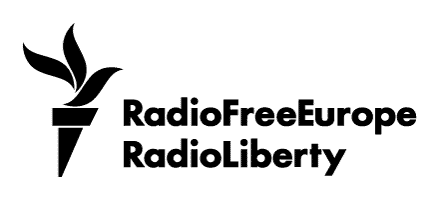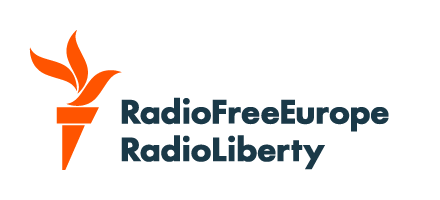Viktor Cherkesov, a former KGB officer who heads Russia's Federal Antinarcotics Agency, disclosed in an open letter to the newspaper "Kommersant" on October 8 that bitter rivalries in Putin's inner circle are on the verge of erupting into open conflict that could threaten Russia's stability.
"We must not allow scandals and infighting," Cherkesov wrote, warning of a "war of all against all" among the security service veterans who dominate Putin's inner circle.
"There can be no winners in this war," Cherkesov added. "There is too much at stake."
Cherkesov did not name names. But analysts say the article is in clear reference to his long-standing feud with two other key members of Putin's inner sanctum -- Federal Security Service head Nikolai Patrushev and the president's powerful deputy chief of staff, Igor Sechin.
Such power struggles have long been a mainstay of Putin's Kremlin, but until now they have been largely hidden from public view. But as Putin's second and final presidential term draws to a close, the infighting is intensifying and coming out into the open.
Under Putin's rule, the siloviki -- veterans of the security and military ranks -- have effectively achieved total domination of Russian political and corporate world.
Putin has given strong indications that he plans to retain formal power, perhaps in a newly empowered prime minister's post, after leaving the presidency next year. His siloviki-dominated inner circle, which forms Russia's collective leadership, is also widely expected to remain firmly in control of Russian politics.
And now that they have achieved dominance, key figures in that collective leadership are fiercely battling each other for position and advantage.
Cracks Appear
"If in fact the situation is more or less preserved as it is, that means the ascendancy of the siloviki and basically the consolidation of their hold on power. So it is an ideal time for them to begin fighting among themselves," says David Satter, author of "Darkness at Dawn: The Rise of the Russian Criminal State."
"It is the same with Russian criminal gangs," Satter added. "When they are raking in the proceeds of their extortion and everything else, they're friends for life. But as soon as it is a question of dividing them up, that's when they start killing each other."
But by going public with the Russian elite's dirty laundry, Cherkesov appears to be violating the guiding ethos of Putin's tight-lipped Kremlin and that of the siloviki.
"The special services have a guiding principle: If you have something to say, then be quiet. If you have nothing to say, then be even quieter," political analyst Yulia Latynina wrote in the newspaper "Novaya gazeta" on October 11. "The Kremlin also has a guiding principle: Don't appeal to the public. Appeal to the president. Appealing to the public shows that you are disloyal and that you don't have access to the president."
So why did a seasoned KGB man like Cherkesov, a long-standing member of Putin's inner circle, make such an unorthodox move? Most Kremlin-watchers say it is because he is losing in his long murky power struggle with his rivals -- and getting desperate.
"It appears he doesn't have access to the president. And he decided to appeal to him via the media," says Vladimir Pribylovsky, director of the Moscow-based Panorama think tank.
Battle Lines Are Drawn
According to analysts and Russian media reports, the battle inside Putin's circle pits Sechin and Patrushev on one side, against Cherkesov and the head of the presidential security service Viktor Zolotov on the other.
Cherkesov's "Kommersant" article came just days after his side suffered a major blow.
On October 2, FSB agents arrested General Aleksandr Bulbov, Cherkesov's right-hand man at the Federal Antinarcotics Agency, at Moscow's Domodedovo Airport. Bulbov has been charged with illegally tapping telephones -- including possibly those of Sechin and other top Kremlin officials, according to analysts and media reports. Several other senior officials at the agency have also been arrested in the case.
In late August, Cherkesov and Zolotov took another hit when police arrested St. Petersburg businessman Vladimir Barsukov, who is reputed to have ties to both men, on suspicion of organizing contract killings.
Barsukov -- who was previously known as Vladimir Kumarin -- is the former vice president of the Petersburg Fuel Company and was once alleged to be the leader of an infamous criminal gang called the "Tambovskaya gruppirovka" or the Tambov Gang. In the 1990s, the Tambov Gang was one of the most influential and feared organized crime groups in St. Petersburg. According to media reports, prosecutors are investigating Zolotov's ties to Barsukov.
Analysts say Sechin and Patrushev -- two of Putin's closest confidants -- have long feared that Cherkesov could become too powerful and challenge their influence.
"Only at first glance is the Antinarcotics Agency a service responsible for combating drug trafficking," Ekho Moskvy's political analyst Yevgeny Buntman said in an October 5 radio broadcast. "In actual fact, it is yet another special service, no less influential than the others. And it was created, among other things, to control the siloviki. Hence, it was granted enormous powers."
Buntman added that as head of this powerful agency, Cherkesov was "the main target" of Sechin and Patrushev's attack. He added that "a second front" has been opened against his ally, Zolotov. "It's a combination of a sense of revenge, a fight for influence, and fear of a strong figure like Cherkesov,” Buntman said.
Balance Of Power
Speaking to RFE/RL's Russian Service, Andrei Soldatov, editor in chief of the news website agentura.ru and a specialist on security issues, says there is widespread suspicion that Cherkesov is angling to become either head of the FSB or Security Council secretary. "There is a serious possibility that the balance of forces between the special services could change," Soldatov said, adding that both sides are trying to protect their political and economic interests.
For his part, Patrushev has tried to portray himself as above the fray, vigilantly carrying out his duties instead of engaging in in-fighting. He gave an interview to "Argumenty i fakty" this week in which he enumerated the foreign spies that his FSB has stopped so far this year, and on October 14, his agency announced it had exposed a plot to assassinate Putin in Tehran.
Analysts said the arrests of Bulbov and other Antinarcotics Agency officials were a response to an attack Cherkesov launched on Sechin, Patrushev, and their allies last year.
An investigation in the spring of 2006 by Cherkesov's agency led to the ouster of several senior officials, including some top FSB officers close to Patrushev and Sechin, in connection to a high-profile furniture-smuggling case. Bulbov was one of the key investigators in that case, dubbed "Three Whales" for the Moscow furniture importer and showroom involved.
The case also resulted in the resignation as prosecutor-general of Vladimir Ustinov, a close ally of Sechin. According to analysts and press reports, Bulbov tapped a phone conversation between Sechin and Ustinov in which the two discussed Ustinov becoming Putin's successor as president. After resigning, Ustinov was named justice minister.
And where does Putin stand in this epic battle? Analysts say the president has been trying to prevent either side from becoming too powerful in the fight.
"It is clear that this war would have ended long ago if Putin had not supported the weakest side at every juncture," Latynina wrote in "Novaya gazeta" on October 11. "He is interested in this fight wearing out both sides. War between the special services is what we have in place of a separation of powers."
If this is indeed the case, then Cherkesov's appeal may have been a shrewd move.
"Maybe it's not so foolish for Cherkesov to go through the media," said Pribylovsky of the Panorama think tank. "He may be showing Putin that he is so weak that he needs to appeal this way and needs help."






